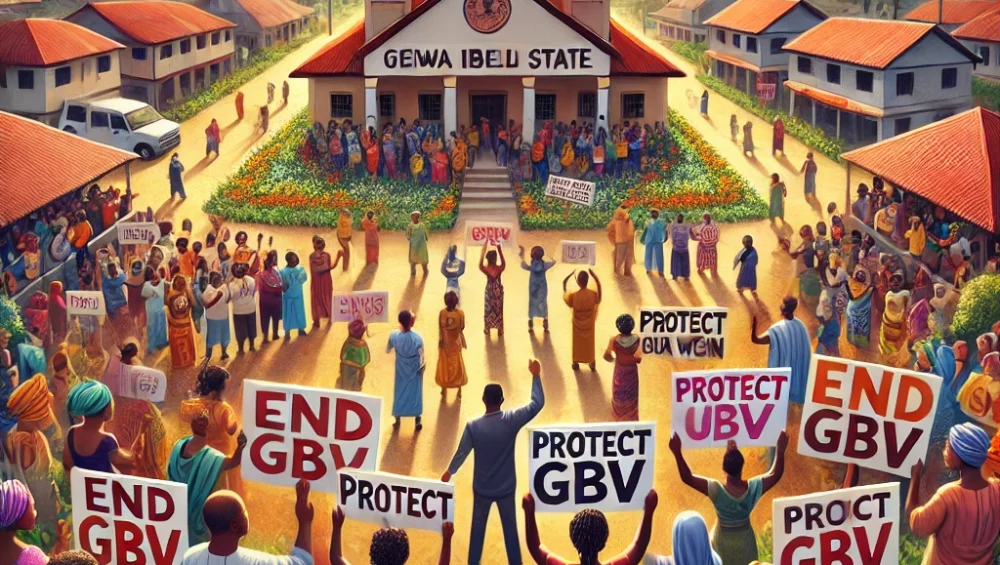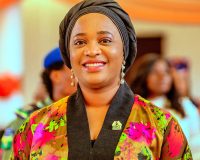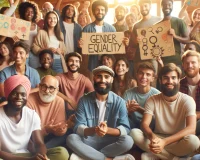Gender-Based Violence (GBV) remains one of the most pressing human rights issues globally, and Akwa Ibom State is no exception. This pervasive issue affects individuals irrespective of age, ethnicity, or socio-economic background, with devastating consequences for survivors, families, and communities. Understanding GBV and addressing it requires a collective effort from government, civil society, and every member of the community.
What is Gender-Based Violence?
GBV refers to harmful acts directed at individuals based on their gender. It includes physical, sexual, emotional, and economic abuse, as well as harmful practices such as child marriage and female genital mutilation. Women and girls are disproportionately affected, although men and boys also face GBV in certain contexts.
In Akwa Ibom State, GBV manifests in various forms, including domestic violence, sexual assault, trafficking, and workplace harassment. Cultural norms and practices, poverty, and systemic inequality exacerbate the prevalence of GBV in the region.
The State of GBV in Akwa Ibom State
Akwa Ibom State has a rich cultural heritage, but certain traditional practices contribute to the perpetuation of gender-based violence. These include:
- Patriarchal norms that limit women’s rights and agency.
- Silence and stigma surrounding sexual violence, discouraging survivors from speaking out.
- Limited access to justice for survivors, with cases often resolved through informal means.
Data from local NGOs and reports from health and law enforcement agencies indicate a troubling rise in GBV cases, particularly domestic violence and child abuse. Many survivors remain in silence due to fear of retribution or societal judgment.
The Impact of GBV on Communities
The consequences of GBV go beyond the immediate harm to survivors. It disrupts families, hinders economic productivity, and perpetuates cycles of poverty and violence. Children exposed to GBV are more likely to experience long-term emotional and psychological challenges, while communities bear the burden of increased healthcare and legal costs.
What Can Be Done?
- Awareness and Education: Community members must be educated on the root causes and consequences of GBV. Schools, religious institutions, and local organizations can serve as platforms for promoting gender equality and respectful relationships.
- Strengthening Legal Protections: Laws like the Violence Against Persons Prohibition (VAPP) Act must be effectively implemented. Survivors should have access to justice through a streamlined legal process that protects their dignity and safety.
- Support Services for Survivors: Establishing safe spaces, counseling centers, and support groups for survivors can help them recover and reintegrate into society. The Akwa Ibom State Government can work with NGOs to expand these services.
- Community Engagement: Engaging traditional leaders, men, and boys as allies in the fight against GBV is critical. Programs that challenge harmful gender norms and empower individuals to stand against violence are essential.
- Strengthening Partnerships: Collaboration between government agencies, civil society organizations, and international partners can lead to more effective and sustainable solutions.
Your Role in Addressing GBV
Ending GBV in Akwa Ibom State requires collective action. Speak out against harmful practices, support survivors, and advocate for gender equality in your community. Everyone has a role to play in creating a safer and more equitable society.
A Call to Action
The Akwa Ibom State Government remains committed to addressing GBV through policy reforms, education campaigns, and support for survivors. However, the fight against GBV cannot succeed without active community involvement. Together, we can build a future where every individual lives free from violence and fear.
Together, let’s say NO to Gender-Based Violence.






